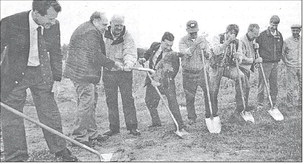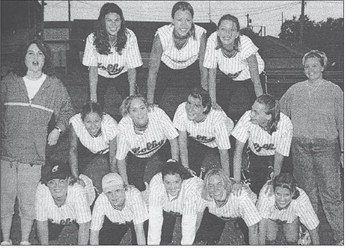Competition is great, but we need cooperation too


Ah, the duality of sports. Just two weeks ago in this very space, I wrote about how great a weekend Wisconsin sports fans had, waxing on about how impressive the Packers, Brewers and even the Badgers had looked in their respective games.
This past weekend was nearly the exact opposite. Just as the football and baseball gods giveth, they taketh away.
I just wish it wouldn’t all be at the same time. I won’t get into the nitty-gritty details of how Milwaukee lost their series against the hated Cardinals, Green Bay threw away a game in which their opponent had yet to score with four minutes left in the fourth quarter, and Wisconsin looks like a team that has a very good chance of not winning another game this season. Reliving that all is probably not good for my health.
But this weekend’s situation when juxtaposed to that of just 14 days prior is an interesting look into the world of competition.
Why is it that pitting the skills of one person, or one group of people, against another is so captivating to many? Even if one specifically does not like sports, there are plenty of other opportunities for competition in our society. A large portion of our entertainment is rooted in some sort of competition; board games, card games, video games, sports, etc. All of these can be played by anyone, but the best compete in front of thousands, if not millions, of fans who enjoy even watching the competition. Other hobbies that are less overtly competitive in nature, like gardening, creating music, or writing fiction all have their own contests and events where participants go up against each other to win awards, praise and fame. Even the least engaging of activities like watching and consuming television or movies have us competing against each other in forums online, debating which are the best or the worst.
And that’s just what we do for fun. The economic and governmental structures that we have built for ourselves are far more adversarial than cooperative, their very natures are steeped in competition. Our societies, both now and across history, are and have been vastly designed around getting ahead and staying ahead, even if it means leaving others behind as a result.
But the fact that competition is not only part of our societal structures, but also our entertainment, perhaps suggests something. Perhaps it isn’t just the thrill of winning that makes whatever one is competing in well worth the potential hurt of losing, but also the pride one takes in knowing that you also proved yourself better than another to do it.
Does a hobby like painting need a contest to determine whose work is the best? Cannot all these just be appreciated for what they are and not pitted up against each other? They could, and sometimes they are, but many times they aren’t. Because people like knowing who is better.
This is the slippery slope of competition. Don’t get me wrong, I’m a competitive person myself. There is a lot of enjoyment to be gained from doing well in something, a lot to be learned from pushing oneself to earn those victories. So much so that we remain engaged even when it crushes us more often than not.
But we should also be careful to not get carried away with it either. It can quickly turn sour, and in the worst cases, can lead to a dehumanizing of the opponent.
Winning is great. Losing, not so much. But at the end of the day, we should not lose perspective. At the end of the day, the person on the other side is still a person.
As great as competition is, cooperation is a far more productive force. Both football teams choose to play with 11 players; hypothetically, they could play with fewer if they wanted to and are restricted from playing with more (unless you are the Browns and the refs don’t see you). Why? Because playing with 11 people working together most of the time is more productive than playing with 10 people. Because working together as a team can accomplish so much more than working by or for oneself.
Just as human societies throughout history have structured themselves around competition, so too have they grown through cooperation. Fields could be managed, dangerous predators scared off or defeated. Structures that would take a lifetime to build by a single person can be completed in months. The history of scientific advancement is one of people building upon the knowledge of their peers and predecessors. Competition can be a great driving force, but human beings have gotten to where we are more by the hand of cooperation than feuding or one-upmanship.
In a world where it is far easier to see your perceived opponent as someone less than human because of the miles of Internet anonymity hiding them from you, and vice versa, I think it’s important to keep this in mind. Compete, yes, but respect, understanding and cooperation are needed as well.
A C ERTAIN POINT OF V IEW




